Related Research Articles

Wong Fei-hung was a Chinese martial artist, physician, and folk hero. His recent fame was due to becoming the protagonist of numerous martial arts films and television series. The role of Wong Fei-hung has been played by numerous well-known stars of Hong Kong and Chinese cinema, including Gordon Liu, Jackie Chan, Kwan Tak-hing, Jet Li, Vincent Zhao, and Sammo Hung. Even though he was considered an expert in the Hung Ga style of Chinese martial arts, his real public fame was as a physician who practiced and taught acupuncture, Dit Da and other forms of traditional Chinese medicine in the now famous Po Chi Lam, a medical clinic in Canton (Guangzhou), Guangdong Province. A museum dedicated to him was built in his birthplace in Foshan, Guangdong.

Chen Kaige is a Chinese filmmaker. A leading figure of the fifth generation of Chinese directors, Chen is known for his visual flair and epic storytelling. Chen won the Palme d'Or at 1993 Cannes Film Festival and the International Federation of Film Critics (FIPRESCI) Award in 1993 for directing Farewell My Concubine.
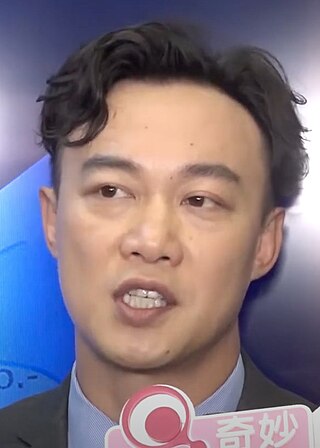
Eason Chan Yick Shun is a Hong Kong singer and actor. He is one of the most popular and influential singers in both Cantopop and Mandopop. Besides holding the record for winning the "Ultimate Male Singer – Gold" award and "My Favorite Male Singer" award at the "Ultimate Song Chart Awards Presentation" in HK, he is also holding the record for being nominated for and winning prestigious Golden Melody Awards "Best Male Mandarin Singer" in Taiwan. Chan was ranked sixth in the 2013 Forbes China Celebrity Top 100 List.
Corey Yuen Kwai was a Hong Kong film director, film producer, action choreographer, and actor. Yuen attended the China Drama Academy and was one of the Seven Little Fortunes. In Hong Kong, he worked on several films such as Bruce Lee's Fist of Fury (1972), Hwang Jang-lee's Snuff Bottle Connection, Secret Rivals 2, The Invincible Armour, Dance of the Drunk Mantis (1979), Ninja in the Dragon's Den (1982), Millionaire's Express (1986), and Jet Li's Fong Sai-yuk II (1993), The New Legend of Shaolin (1994), High Risk, and My Father Is a Hero.
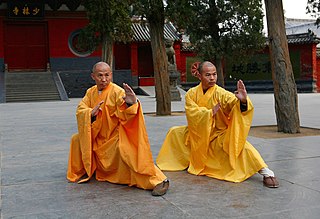
Wu Kung-tsao or Wu Gongzao (1902–1983) was a famous Chinese teacher of tai chi. He taught in Beijing, Shanghai, Changsha and Hong Kong. He was the second son of Wu Jianquan, the best known teacher of Wu-style tai chi, and the grandson of Wu Quanyou, the first teacher of Wu-style tai chi. Wu Kung-tsao was the younger brother of Wu Gongyi and the older brother of Wu Yinghua. The Wu family were originally of Manchu ancestry.
Zhong Acheng, often known by his pseudonym Ah Cheng, is a Chinese author and screenwriter.

Allan Zeman is a Hong Kong business magnate.
![<i>The Crazy Companies</i> 1988 [[Cinema of Hong Kong|Hong Kong]] film](https://upload.wikimedia.org/wikipedia/en/b/b7/TheCrazyCompanies.jpg)
The Crazy Companies is a 1988 Hong Kong comedy film directed by Wong Jing, and starring Andy Lau and Natalis Chan. It was followed by a sequel, The Crazy Companies II, which was released in 1989.

Kenneth Ma Kwok-ming is a Hong Kong actor contracted to TVB.
Aw Chu Kin was a Burmese Chinese herbalist. He is best known as the original inventor of Tiger Balm.

Cheuk Wan-chi, also known as Vincci, G and GC Goo-Bi, is a Hong Kong media personality, stand-up comedian, screenwriter and director, master of ceremonies, and an occasional television pundit and talk show host. She first came to prominence as a disk jockey and radio personality working for Hong Kong's Commercial Radio (CRHK).
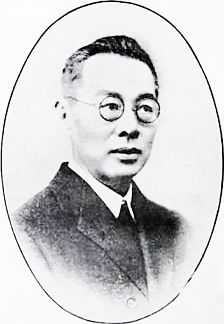
Chan Siu-bak (陳少白), courtesy name Siu-bak (少白), art-named Kwai-shek (夔石), was a Chinese revolutionary from Xinhui, Guangdong. He was one of the Four Bandits, together with Sun Yat-sen, Yau Lit and Yeung Hok-ling.

Xu Zheng is a Chinese actor and director best known for acting in comedic roles. Xu directed, co-wrote, co-produced, and starred in Lost in Thailand (2012) and Lost in Hong Kong (2015), two of the highest-grossing films in China. He also co-produced and starred in Dying to Survive (2018).
Amy Siu-haan Cheung is one of Hong Kong's most popular writers, well known throughout the Chinese-speaking world for her books on love and relationships. Her first novel, Women on the Breadfruit Tree, appeared in serialized form in the daily newspaper Ming Pao. She has written more than forty widely acclaimed books, including novels and essay collections. She was named one of the ten richest Chinese authors in 2013, as well as one of the ten most influential microbloggers on Weibo, with more than 64 million followers.

Dada Chan is a Hong Kong actress and model under Jacso Entertainment based in Hong Kong.
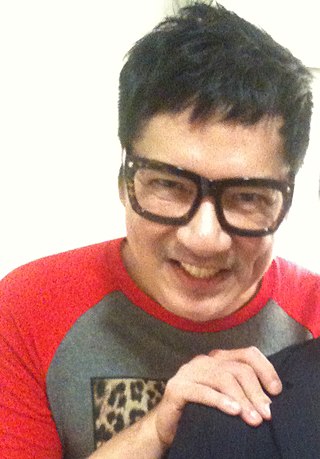
Pal Sinn Lap-man is a Hong Kong musician and actor.

Helen Ma is a Hong Kong actress. Beginning her career in the Hong Kong movie industry since the 1960s, she is known to have appeared in various Hong Kong produced movies and dramas. Ma is currently an actress under television broadcast TVB.

Lee Sun Chau was one of the first female Chinese doctors of Western Medicine in China.
Li Huayi is a contemporary ink artist whose admiration for the monumental landscapes of the Northern Song dynasty with his training in both traditional Chinese ink and Western art, inspired him to create his own style of ink painting.
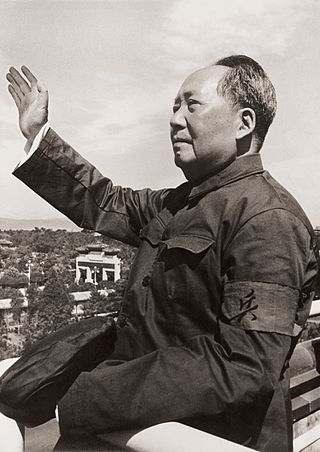
Red August is a term used to indicate a period of political violence and massacres in Beijing beginning in August 1966, during the Cultural Revolution. According to official statistics published in 1980 after the end of the Cultural Revolution, Red Guards in Beijing killed a total of 1,772 people during Red August, while 33,695 homes were ransacked and 85,196 families were forcibly displaced. However, according to official statistics published in November 1985, the number of deaths in Beijing during Red August was 10,275.
References
- ↑ 作家簡介 [Biographical Notes on the Authors]. HK Authors (in Chinese).
- ↑ Liu Yun (刘筠) (2008-11-28). 想把苏厝街拍进电视剧 [He Wants to Include Sucuo Street in a Television Drama]. Xiamen Daily News (in Chinese).
- ↑ Chan Man-kwai (2011-12-10). 永定,当年我插队的地方。 [Yongding, where I was sent down to.]. Sina Weibo (in Chinese).
- ↑ Li Qiao (李乔) (2013-05-06). 陈文贵:说故事的隐者 [Chan Man-kwai: The Invisible Storyteller]. Circle Magazine (in Chinese). Archived from the original on 2017-04-04. Retrieved 2017-04-02.